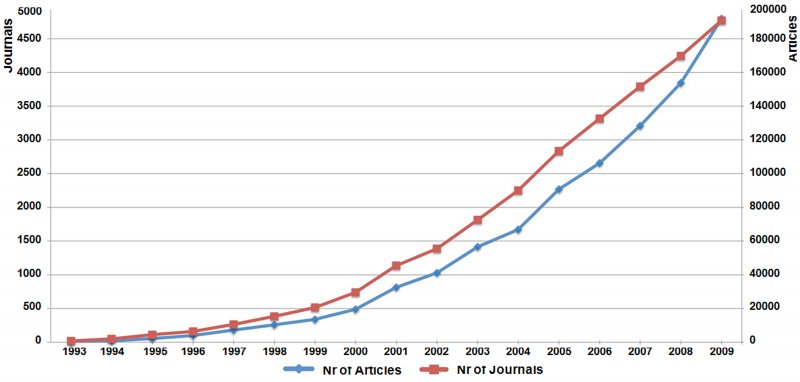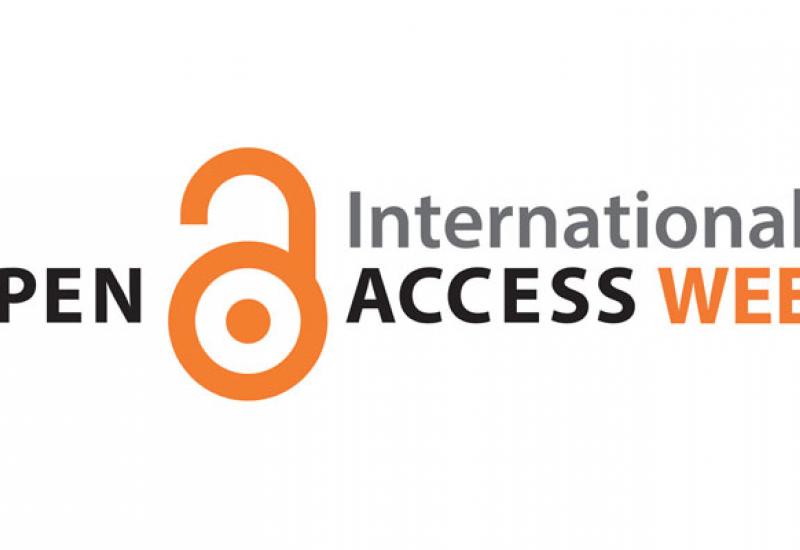International traffic is one of the defining trends of modern scientific communication for the open access movement for free and unrestricted online access to scientific and educational material. University libraries have always been advocates of open access, and the Scientific and Technical Library "KPI after Igor Sikorsky" is no exception. Therefore, the International Open Access Week Open Access Week (24-30 October), which this year celebrated the tenth in the world, the Student Space "Belka" seminar "Open Access to scientific information: who, why and how." Participants of the workshop were teachers, students, university staff, representatives of the editors of scientific journals. On the open access library director told Oksana Bruy.
Background of the open access movement began to rise in prices for scientific journals and intensive development of information technology. The scientific debate on how to accelerate the development of science in a Global began the middle of the twentieth century in the United States. And in 1991 created the first open archive of natural and computer sciences, known today as ArXiv (arXiv.org). In 1998 passed the American scientific forum on open access (American Scientist Open Access Forum), where researchers discussed the problem of access to scientific information. One of these problems is the high cost of subscription to scientific journals, determined thousands of dollars a year and growing. In 2001 34,000 scientists signed a letter to scientific publishers, which reflected the idea of open access. In 2002 the Budapest Open Access Initiative (BOAI) was published, which was formulated the concept of open access, which includes:
- Free online access to scientific literature;
- Free use for research, teaching and other purposes;
- Author's right to control over their work and the right to reference and citation.
Since October 2009, the International Open Access Week is held every year, which initiated by coalition of scientific publications and academic resources (SPARC). This event involved libraries, universities, publishers, public organizations worldwide to promote the idea of open access and resolve urgent issues of development.
Today realized two ways to open access, open access archives ( "green way") that offer archiving scholars of his work, and open access journals ( "golden path"), implementing a new financial model, when the process of scientific publishers pay no subscribers and authors or institutions.
Broad support for open access is now providing all participants in the process of scientific communication: scientists scientific and educational organizations, publishers, libraries, since all are certain advantages.
For scientists this is free access to the latest research in the field; more active dissemination and impact of their work, hence the scientific credibility. For scientific and educational organizations this is credibility, prestige in the scientific world and ratings as well as new management capabilities of scientific communication. For publishers this is a broader presence and visibility of publications, citations growth and increasing impact factor. For libraries have easy access to sources of scientific information, quality information needs of users, new partnerships with scientists, teachers, publishers. For the national economy, the development of science and society provides open access accelerate scientific progress, productivity, knowledge transfer.
However, critics point out open access its shortcomings. They write that open access is a threat to intellectual property. On the other hand, free access publication is proof of authorship and Creative Commons licenses give creators the opportunity to regulate the use of their works. It is alleged that the absence of open access review can get substandard and even false job. However, it is not only open access publications, but also commercial. Notes that growth through open access publications required number of researchers increased spending time to study the materials on research, which reduces the time to study it. But for quick selection and quality publications should apply it to special archives, databases, assisted by experts from the search.
There are different kinds of scientific journals that provide free access to its free publications. There are several types of publications:
- Open-access journals, which provide free online access to readers without any financial, legal or technical barriers;
- Hybrid open access journals that provide free online access without any delay only to those articles, free access to which paid authors (their institutions or donors);
- Magazines delayed open access, which provide free online access after the end of the embargo.
Function different models of payment for the publication of articles in open access journals: when paying by; pays his organization; Fees laid a grant for scientific research.

In addition, logs can provide special terms of payment for authors from developing countries.
In the directory of open access journals (DOAJ) http://www.doaj.org/ represented the most authoritative scientific journals open access. On the day of the seminar (24 October) it was presented with the 9181 Journal 128 countries, including 87 magazines from Ukraine. In 2002 there were only 33 directory logs from 7 countries.
In Ukraine, the rapidly developing open-access journals. Thus, in the "scientific periodicals in Ukraine OJS" (http://journals.uran.ua/index.php/index/index) in October 2016 represented 380 magazines.
Research data can also be placed in the archives (repositories) open access. There are institutional electronic archives; themed electronic archives; aggregators, which presents data from multiple archives; state archives, where the government data.
Open Access repositories providing free access to research materials, their archiving and storage on long-term basis, to exchange metadata ensure the immutability of e-publishing. They provide permanent storage and the safe storage of papers, permanent URL, rapid dissemination of research results among the global scientific community, search metadata and full-text search of digital materials, receiving guaranteed high performance indexing on Google and other search engines, the ability to enrich CV scientists full text , increase rankings and citation index, the opportunity to find international partners and others.
Legal support provide open access license Creative Commons (http://creativecommons.org), which is flexible and fair system of copyrights which, on the one hand, protects the authors, and the other leads to the free use of their works. Creative Commons allows authors to determine the principles for further use of their works.
The ability to get information and find alternative ways of accessing paid scientific information provides a special application to the browser. Button Open Access (https://openaccessbutton.org). The application seeks to open sources, and sends a message to the author if someone needs information about his research.
NTB them. H.I.Denysenka "KPI them. Igor Sikorsky" actively implements the idea of open access. Library focuses on the creation, support and development of open access in the CPI. These include the development ELAKPI open electronic archive of scientific and educational material "KPI them. Igor Sikorsky" (http://ela.kpi.ua). Also, scientific journals and conferences KPI are publicly available on the platforms. Scientific Periodicals Ukraine (http://journals.uran.ua/) Conferences and Ukraine (http://conferences.uran.ua/).
Open Access as an innovative idea with its own ideology and legal justification of technological solutions originated among the "producers" and "consumers" of scientific information, scientific communication model has changed and has broad support among scientists, state, society and international organizations.
Presentation "Open access to scientific information: who, why and how" is in open electronic archive of the University - http://ela.kpi.ua/handle/123456789/17904.
In the future, our library staff plan to introduce more all interested readers to various aspects of open access.

